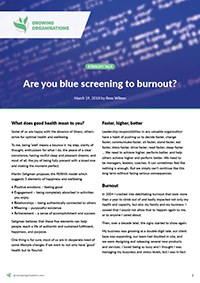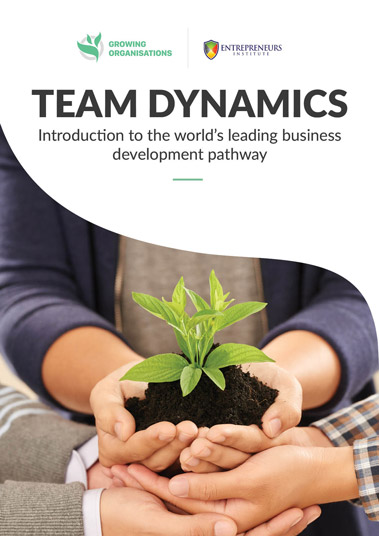Download this blog as a pdf and read it later
What does good health mean to you?
Some of us are happy with the absence of illness, others strive for optimal health and wellbeing.
To me, being ‘well’ means a bounce in my step, clarity of thought, enthusiasm for what I do, the peace of a clear conscience, having restful sleep and pleasant dreams, and most of all, the joy of being fully present with a loved one and making the moment perfect.
Martin Seligman proposes the PERMA model which suggests 5 elements of happiness and wellbeing:
- Positive emotions – feeling good
- Engagement – being completely absorbed in activities you enjoy
- Relationships – being authentically connected to others
- Meaning – purposeful existence
- Achievement – a sense of accomplishment and success
Seligman believes that these five elements can help people reach a life of authentic and sustained fulfilment, happiness, and purpose.
One thing is for sure, most of us are in desperate need of some lifestyle changes if we want to not only have ‘good’ health but to flourish.
Faster, higher, better
Leadership responsibilities in any valuable organisation have a habit of pushing us to decide faster, change faster, communicate faster, sit faster, stand faster, eat faster, dress faster, drive faster, read faster, sleep faster … We need to achieve higher, perform better, and help others achieve higher and perform better. We need to be managers, leaders, coaches. It can sometimes feel like nothing is enough. But we simply can’t continue like this long term without facing serious consequences.
Burnout
In 2004 I crashed into debilitating burnout that took more than a year to climb out of and badly impacted not only my health and capacity, but also my family and my business. I vowed that I would not allow that to happen again to me, or to anyone I cared about.
Then, over a decade later, the signs started to show again.
My business was growing at a double-digit rate, our client base was expanding, our team had doubled in size, and we were designing and releasing several new products and services. I loved being so busy and I thought I was managing my busyness and stress levels, but I was in fact ignoring my own health and wellbeing by not taking time to look after my body, mind, and spirit.
When I went to the doctor for my routine annual ‘warrant of fitness’ check, I was shocked to find out, for the first time in my life, my blood pressure was 160/110. A 24- hour assessment proved that this was not an outlier. I had a problem.
Blue is the new white?
Remember when TVs had that aggravating scratchy white noise? When it appeared, it was hard to stand and we would almost certainly jump to switch it off. Modern TVs have replaced that with a soothing blue colour and silence. It serves the same purpose but we can put up with it for longer.
I realised I had been ‘blue-screening’ for a while. Putting up with it – barely noticing the signs. But suddenly the blue screen had become white noise again … I now noticed the ringing in my ears, heart palpitations, mental fading, persistent weariness, aches and pains, one-second faints, and general lethargy and gloominess.
What should I do about it? Take pills? Take a holiday and come back to the same situation? Drink more red wine? Keep calm! Harden up! Carry on! I told myself. But maybe that kind of approach was what got me here in the first place.
Habits
My always-on lifestyle had become a habit. I habitually said yes to everyone. I habitually multi-tasked and checked my phone while talking to colleagues and friends. I habitually filled my calendar with appointments without enough time between them and went back to my office after dinner and on weekends. I habitually read every single email and article in my line of sight. I habitually walked past my home gym and left my bike in the shed and ate easy processed food. And I habitually ‘hardened up’ and carried on like a ‘good Kiwi’. Sound familiar?
It was clear that this ‘blue-screening’ was simply not a sustainable way to live, and inevitably the cracks had begun to show.
Are you blue-screening to burnout?
If you can relate to any of my story above then you may be blue-screening too. In New Zealand we are already in the early stages of an epidemic of stress-related illnesses. The stats have been telling us this for a while now, but maybe most of us think it won’t happen to us. According to Richard Branson, 12.5 million days of productive work were lost in the UK last year through stress-related leave[1]. For many people, pills, caffeine/alcohol, or quick, cheap thrills make it slightly easier to keep up the madness, until their health packs up completely.
Be a good example to your people
One thing often overlooked in studies of leadership and in leadership development programmes is the truth that followers pick up far more from their leaders than competence and functional success; they also pick up ways of thinking – philosophy – about how to live. That is, we leaders are in fact leading others into a form of life. If someone you’re leading trusts you and regards you with respect, then they will be becoming like you to some extent.
Pause for a moment and ask yourself: If your colleagues all became more like you, would that be good for them? What if they were to eat like you, drink like you, exercise, sleep, and relax like you? What if they formed and maintained relationships like you do, managed their finances and planned their lives like you? If you’re a high-integrity leader, they will be learning these things from you as well as how to manage staff and lead organisations just like you do.
Are they fulfilled and productive or overworked, unhappy, and heading for burnout?
Check your levels
What is your dashboard telling you? Have you noticed any changes in your general state lately? Shallower breathing, heart palpitations or irregular beat? Lower energy than usual? Irritableness, impatience, intolerance? Food cravings? Headaches, migraines, or aching joints and tight muscles? What about the quality of your connections with the people around you?
Reach out for support
After realising I had to change my ways, I decided to share my ‘news’ with a few friends. Far from judging me, they cared deeply, and encouraged me. With their help and support I re-scripted some of my key habits and they guided me through the change process. Little by little I changed my diet, my hydration, my exercise, my sleep, my work load, my meditation, my time with friends and family (and who I spent that precious time with). To my surprise they weren’t huge difficult changes to make and they didn’t take much more time than some of the less important activities I had been filling my day with before. Of course, I did have to work at them to make them regular habits.
When I returned to the doc two months later, without having taken a single pill, my BP was normal and stable – and I’d lost 12kg as a bonus!
I feel grateful that this time round the warning of the blue screen was brought to my attention before I got full burnout and that I have people who love me and help me, often without words, to stick with my new normal.
Who can you go to for advice or support?
“Even if we have little time for healthy relationships, we all instinctively understand their importance … they are an increasingly rare commodity. Overloaded contemporary life attempts to de-relationalise us …”
Richard Swenson
What’s really important in your life?
Being clear about what’s important to you is one of the key factors of well-being. As Simon Sinek says, Start with Why. Pursuing a higher purpose, something other than ourselves, is not only the key to happiness and wellbeing, it is essential to being fully human. Life purpose is so important to mental, physical, and spiritual health that I encourage my friends, family, and the business leaders I connect with to make the discovery of their purpose a high priority.
Do you know your big Why? Do you know your short-term Why? What gets you out of bed in the morning? What is your most challenging goal for 2018, or for the next few weeks? How will the achievement of that goal contribute meaningfully to the fulfilment of your purpose? Who does it touch besides you?
What can you do today?
Here are a few simple reminders to help you avoid burnout, live optimally, and set a good example to your people:
COACHING
Find a good executive coach who will guide you through a personal inventory and identify where you need to focus more of your time and energy on more meaningful activities. Some coaches are qualified to comment on burnout some are not (make sure you check).
MEDICAL CHECKS
Get your blood chemistry checked by your GP. Order ‘the works’ from the lab. Hormones, PSA, lipids … everything. Go back every year for a W.O.F. If you’re over 40, get a skin spot check, and a digital prostate check or mammogram and smear. And see a cardiologist to benchmark your cardio-vascular health and your fitness.
FITNESS
Set some personal fitness and health goals that are achievable for you. It doesn’t have to be intense – just get moving. Don’t underestimate the value of simple stretching exercises every day.
NUTRITION
Visit a nutritional health professional, someone unbiased who isn’t influenced by fashion and fads, to check your allergies and intolerances. Set some achievable dietary goals. Don’t be tempted to go to extremes – small changes can make a big difference and I believe the ‘everything in moderation’ rule is still valid.
SLEEP
Underestimating and undervaluing the importance of sleep is a huge mistake. When we sleep our body repairs itself, regenerates our cells, and recharges our batteries. If you are still expecting to function optimally on little or poor quality sleep, have a read of Ariana Huffington’s books The Sleep Revolution and Thrive as a starting point.
FINANCIAL HEALTH
Meet with a financial adviser to eliminate tensions and unhealthy debt on your personal balance sheet and income statement. Set some financial goals.
RELATIONSHIP HEALTH
Choose carefully the people you surround yourself with. A healthy relationship nourishes and flourishes the soul, while an unhealthy one deprives and crushes the soul with insane efficiency. Where your deepest inadequacies and imbalances show up is in your relationships. The closer and more intimate these are the more revealing they are. Find a close friend or relationship coach and have a drink together on a regular basis to talk about your relationships and how to make them work better.
SPIRITUAL HEALTH
Find a spiritual mentor, someone you respect as a person of high integrity and authenticity, who has good values and excellent reputation, and who serves a higher purpose outside of and above themselves. You may know someone in your circle of friends or workmates who can and will guide you on questions of purpose, values, ethics, morals and the practice of these in life. Meet regularly and be brutally honest.
MEANING
Gain some clarity about your Why and try to ensure as much as possible that everything else fits around it. When you live authentically in synchronicity with your Why and you give time and energy to the things that are important to you, you will feel lighter and be able to truly flourish.
Further Reading
- Flourish, Martin Seligman
- Start With Why, Simon Sinek
- By Richard Swenson:
- Burnout, Professor Myron Rush (This appears to be out of print just now but it is in public libraries).
- By Ariana Huffington

ABOUT THE AUTHOR
Ross Wilson is an Organisational Performance Consultant and Managing Director of Growing Organisations. For more information about sustainable development pathways, wellbeing and resilience, and to discuss your business goals, contact us today.
E: ross.wilson@growingorganisations.com | T: 021 152 8400







